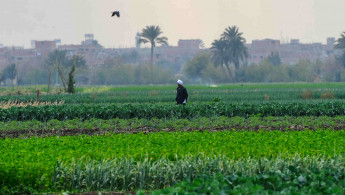Egypt bans water-intensive crops, alarm mounts over Ethiopia dam
Egypt's parliament passed a law late Sunday banning the cultivation of crops that require lots of water, as authorities grow increasingly worried that a massive Ethiopian dam could cut into its water supply.
Rice, bananas and other crops are included in the ban announced on Sunday, with violators facing prison time and fines of up to $3,000. Egyptian President Abdel Fattah al-Sisi would still need to approve the law.
Egypt relies on the Nile for virtually all of its freshwater.
The Blue and the White Nile tributaries converge in Sudan's capital Khartoum and from there run north through Egypt to the Mediterranean. The former contributes more than 60 per cent of the water that reaches Egypt.
News of the $4 billion Grand Renaissance Dam, which began construction in 2012, has sparked tensions between Egypt and Ethiopia.
Twitter Post
|
Multiple rounds of talks have been held over the dam.
Cairo says it has "historic rights" to the river, guaranteed by treaties from 1929 and 1959. Those treaties grant Egypt 87 per cent of the Nile's flow, as well as the power to veto upstream projects.
The Grand Renaissance Dam aims to produce 6,000 megawatts of hydro-electric power - the equivalent of six nuclear-powered plants.
Sisi has previously said the country is building desalination plants along the Red Sea to reduce the country's dependence on the Nile.
Unlike Egypt, Ethiopia receives plenty of rain and does not depend on the Nile as a water source.
Follow us on Twitter: @The_NewArab





 Follow the Middle East's top stories in English at The New Arab on Google News
Follow the Middle East's top stories in English at The New Arab on Google News


